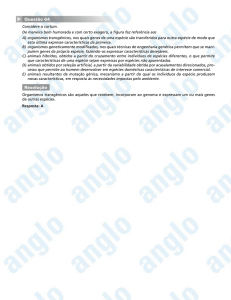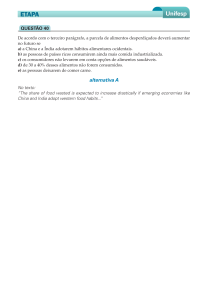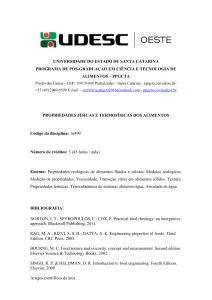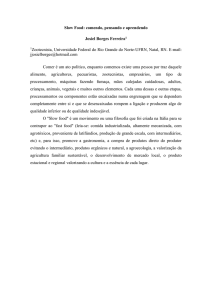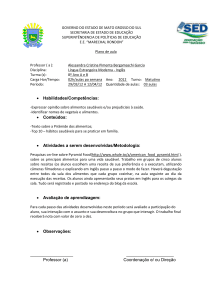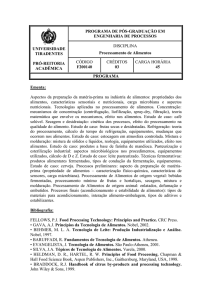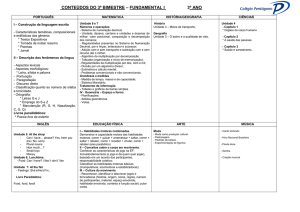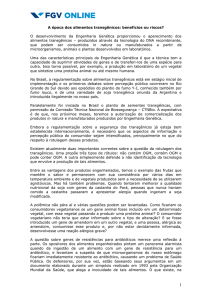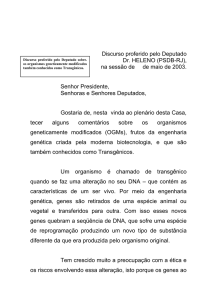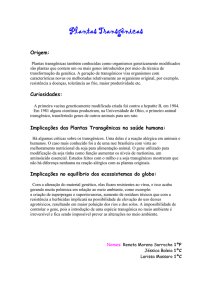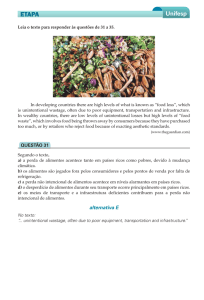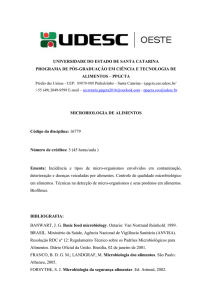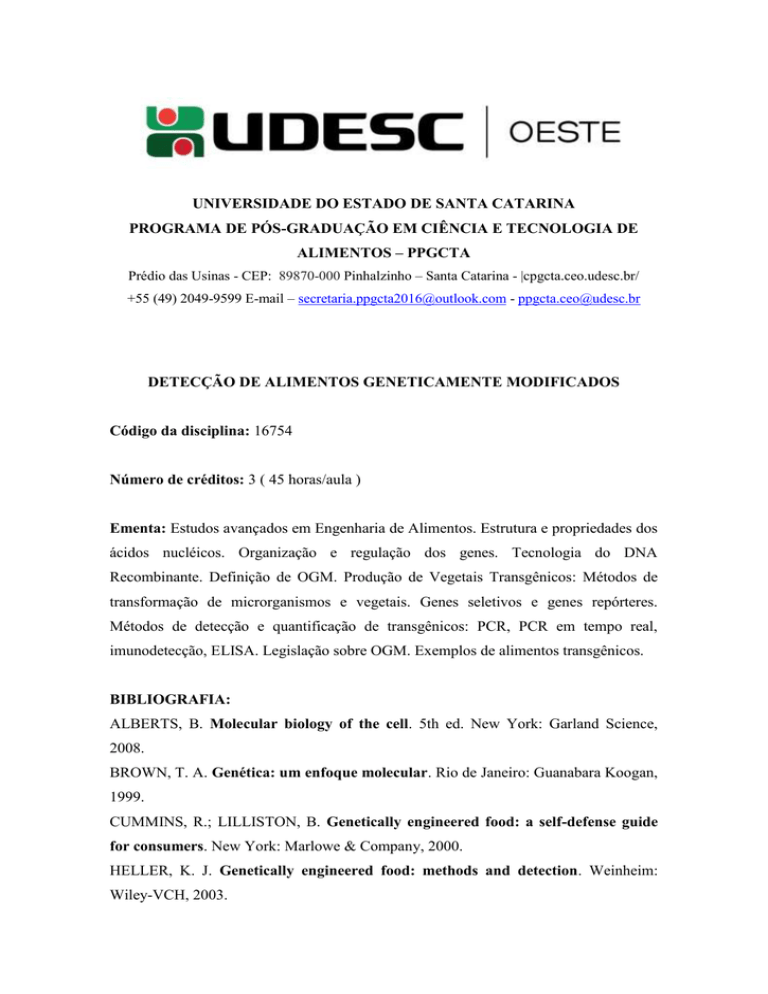
UNIVERSIDADE DO ESTADO DE SANTA CATARINA
PROGRAMA DE PÓS-GRADUAÇÃO EM CIÊNCIA E TECNOLOGIA DE
ALIMENTOS – PPGCTA
Prédio das Usinas - CEP: 89870-000 Pinhalzinho – Santa Catarina - |cpgcta.ceo.udesc.br/
+55 (49) 2049-9599 E-mail – [email protected] - [email protected]
DETECÇÃO DE ALIMENTOS GENETICAMENTE MODIFICADOS
Código da disciplina: 16754
Número de créditos: 3 ( 45 horas/aula )
Ementa: Estudos avançados em Engenharia de Alimentos. Estrutura e propriedades dos
ácidos nucléicos. Organização e regulação dos genes. Tecnologia do DNA
Recombinante. Definição de OGM. Produção de Vegetais Transgênicos: Métodos de
transformação de microrganismos e vegetais. Genes seletivos e genes repórteres.
Métodos de detecção e quantificação de transgênicos: PCR, PCR em tempo real,
imunodetecção, ELISA. Legislação sobre OGM. Exemplos de alimentos transgênicos.
BIBLIOGRAFIA:
ALBERTS, B. Molecular biology of the cell. 5th ed. New York: Garland Science,
2008.
BROWN, T. A. Genética: um enfoque molecular. Rio de Janeiro: Guanabara Koogan,
1999.
CUMMINS, R.; LILLISTON, B. Genetically engineered food: a self-defense guide
for consumers. New York: Marlowe & Company, 2000.
HELLER, K. J. Genetically engineered food: methods and detection. Weinheim:
Wiley-VCH, 2003.
MELO, I. S.; VALADARES-INGLIS, M. C; NASS, L. L; VALOIS, A. C. C. Recursos
genéticos e melhoramento: microrganismos. Jaguariúna SP: Embrapa Meio
Ambiente, 2002.
NELSON, D. L.; LEHNINGER, A. L.; COX, M. M. Lehninger princípios de
bioquímica. 3. ed. São Paulo: Sarvier, 2002.
TEITEL, M.; WILSON, K. A. Genetically engineered food: changing the nature of
nature. Rev. and updated, 2 ed. Rochester, Vermont: Park Street Press, 2001.
TORRES, A. C.; CALDAS, L. S.; BUSO, J. A. Cultura de tecidos e transformação
genética de plantas. Brasília: EMBRAPA, 1998.
VIEIRA, E. C.; GAZZINELLI, G.; MARES-GUIA, M. Bioquímica celular e biologia
molecular. 2. ed. São Paulo: Atheneu, 2002.
Periódicos específicos: Food Chemistry, Analytical and Bionalytical Chemistry, Journal
of Food and Agricultural Research.

